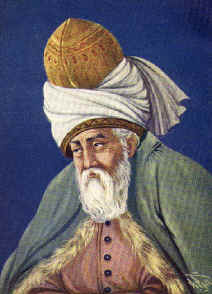In 1899 James E. Talmage, a renowned chemist in England and America and apostle in the LDS church, wrote a book titled '
The Articles of Faith' analyzing the doctrines laid out by Joseph Smith in a
letter he wrote titled by the same name. Despite its age, it remains today one of the seminal works discussing Mormon Theology. From
the section titled "The Holy Ghost", Talmage writes:
Subtler, mightier, and more mysterious than any or all of the physical forces of nature are the powers that operate upon conscious organisms, the means by which the mind, the heart, the soul of man may be energized by spiritual forces. In our ignorance of the true nature of electricity we may speak of it as a fluid; and so by analogy the forces through which the mind is governed have been called spiritual fluids. The true nature of these manifestations of energy is unknown to us, for the elements of comparison and analogy, so necessary to our human reasoning, are wanting; nevertheless the effects are experienced by all. As the conducting medium in an electric circuit is capable of conveying but a limited current, the maximum capacity depending upon the resistance offered by the conductor, and, as separate circuits of different degrees of conductivity may carry currents of widely varying intensity, so human souls are of varied capacity with respect to the higher powers. But as the medium is purified, as obstructions are removed, so resistance to the energy decreases, and the forces manifest themselves with greater intensity. By analogous processes of purification our spirits may be made more susceptible to the forces of life, which are emanations from the Holy Spirit. Therefore are we taught to pray by word and action for a constantly increasing portion of the Spirit, that is, the power of the Spirit, which is a measure of this gift of God unto us.
Talmage is drawing an analogy from Ohm's law which was widely accepted by the scientific community some 50 years before Talmage had this insight. Having studied the physics covering electromagnetism myself, this idea brought back many memories of working through simple circuit diagrams with voltage, intensity, and resistance. The relationship between these three values is expressed in Ohm's law:
Here, the intensity of current in a circuit (measured in amps) is equal to the voltage (electrical potential) of a power source divided by the resistance of the medium through which that current flows. The greater the voltage the greater the current. However, the greater the resistance the less current. By analyzing this equation and see what insights it gives drawing from Elder Talmage's analogy above, much can be learned.
In the Book of Mormon Alma chapter 30 gives an account of a trail between the high priest, Alma, and Korihor who had been accused of blaspheme. After Korihor insists that a sign must be given before anyone should exercise faith, Alma responds:
Behold, I am grieved because of the hardness of your heart, yea, that ye
will still resist the spirit of the truth, that thy soul may be
destroyed.
Alma 30:46
Sometime later, Alma - in preaching to the poor and rejected class of the Zoramites - makes a wonderful analogy between the word of God and a seed. Here, he also uses the word 'resist' when speaking of wickedness and hardheartedness (possibly referring to his previous encounter with Korihor):
Now, we will compare the word unto a seed. Now, if ye give place, that a seed may be planted in your heart, behold, if it be a true seed, or a good seed, if ye do not cast it out by your unbelief,
that ye will resist the Spirit of the Lord, behold, it will begin to
swell within your breasts; and when you feel these swelling motions, ye
will begin to say within yourselves—It must needs be that this is a good
seed, or that the word is good, for it beginneth to enlarge my soul;
yea, it beginneth to enlighten my understanding, yea, it beginneth to be delicious to me.
Alma 30:28
In modern times, Christ - speaking to Lyman Sherman through Joseph Smith - in December 26, 1835 - spoke similarly:
... resist no more my voice.
D&C 108:2
In basic circuits, to which this analogy relates to, the voltage is constant. That constant voltage relates to God and his power which is described as "... the same yesterday today and forever..." (
1 Ne. 10:18). God's power is always there, available to anyone, and it's potential is unchanging.
Given the voltage is constant, the resistance becomes the determining factor for the intensity in the circuit. Likewise, as God's power is constant, unchanging, and is always extended towards each one of His children, our will compared to His becomes the determining factor of the efficacy of that power flowing through our lives. Again from the above Talmage quote:
.... as the medium is purified, as obstructions are removed, so resistance to
the energy decreases, and the forces manifest themselves with greater
intensity.
So, what is the resistance that is required to allow God's power to more fully flow through us? It, surprisingly, is not zero given the equations above. If a resistance of zero, or analogously an empty will, is introduced to the equation impossible or undefined results are found. Such is life without free will or with an empty will (see
2 Ne. 2:11-13). Could this begin to describe the situation where Satan sought to deny the power of God and place Himself above it by destroying the agency of man (see
Moses 4:3)?
So, if having zero resistance introduces problems in the equation and the analogy then what
should "R" ideally be? To answer the question it helps to rearrainge Ohms law.
What would "R" have to equal in order for "V" and "I" to equal each other?" The resistance would have to be 1. While trying to avoid taking the analogy too far, the notion of "one" has great implications in the gospel and appears throughout it.
The term "one" appears frequently in scriptures to indicate harmony, alignment, equality, and unity. The Lord has said:
... I say unto you, be one; and if ye are not one ye are not mine.
D&C 38:27
It is especially prominent in the
Lord's Intercessory Prayer:
20 Neither pray I for these alone, but for them also which shall believe on me through their word;
21 That they all may be one; as thou, Father,
art in me, and I in thee, that they also may be one in us: that the world may believe that thou hast sent me.
22 And the glory which thou gavest me I have given them; that they may be one, even as we are one:
23 I in them, and thou in me, that they may be made perfect in one; and that the world may know that thou hast sent me, and hast loved them, as thou hast loved me.
Knowing and understand this, it becomes quite clear that the only way the power of God will flow through us is if we choose to become one--harmonizing and aligning our desires and actions with the will of God. Only when this oneness is achieved will the power of God flow through us unobstructed. Nephi (the second) achieved, to some degree, this oneness. Nephi, pondering upon the wickedness of the people at the time, heard the voice of the Lord saying:
4 Blessed art thou, Nephi, for ... thou hast ... sought my will, and to keep my commandments.
5 And
now, because thou hast done this with such unwearyingness, behold, I
will bless thee forever; and I will make thee mighty in word and in
deed, in faith and in works; yea, even that all things shall be done unto thee according to thy word, for thou shalt not ask that which is contrary to my will.
Helaman 10:4-5
Through God's blessing, Nephi's righteousness and unity lead to receiving great power from heaven. And we too can be given power as we align our will with the will of God. The means through which this power is given is through the Holy Ghost, but it is activated through the gift of the atonement. It is of no coincidence that the word "atonement", influenced by the Latin word
adunamentum meaning 'unity', came from an older verb "onement" meaning "to unite" or "make one".
This is how we harness and utilize the gift of the Holy Ghost. As a gift and blessing, it is predicated upon obedience (
D&C 130:20-21;
D&C 132:5). And it is only when our will becomes one with the will of God, through the atonement of Christ, that we may be blessed with His eternal power.












